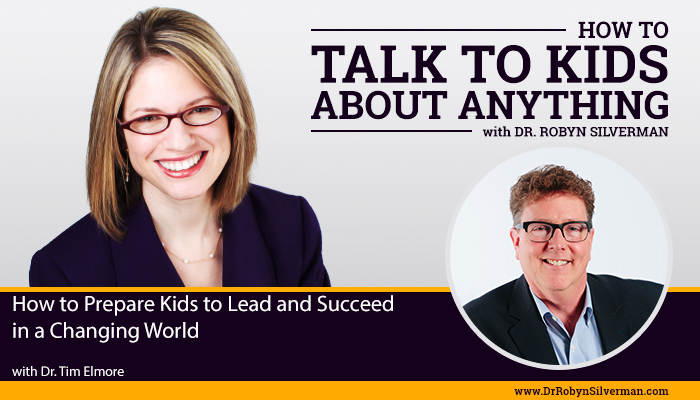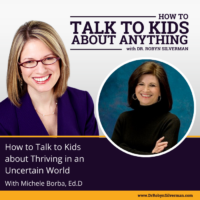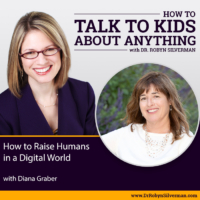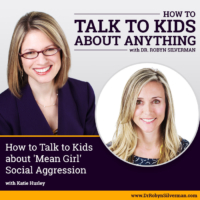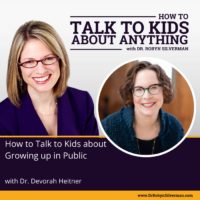Podcast: Play in new window | Download
Subscribe: Apple Podcasts | RSS | More
How to Prepare Kids to Lead & Succeed in a Changing World
This podcast will focus on what to do to help young people succeed and lead in a changing world. What mistakes must be avoid? What techniques must we employ? How can we change the questions and the conversations we have with our kids so that they can become both autonomous and responsible as they grow? My guest, Dr. Tim Elmore, and I discuss the answers to how to help create leaders in a new world of connectivity and constant change.
Inspiring kids today to become tomorrow’s leaders can often feel like venturing into a whole new world. Things are definitely different from when we were kids. Remember when we used to sit in rows in classrooms, listening to our teachers, doing our worksheets, playing in the streets and talking on the phone? So much has changed. This generation’s attitudes are different, their methods of communication are different, their attention span seems different and they can multi-task on several different screens at the same time. Understanding and connecting with this generation can often feel frustrating, confusing and even draining to parents and teachers as we want young people to venture outward, work hard and stand on their own two feet but find that the old methods aren’t really working. We need new strategies to lead and succeed this new generation.
from when we were kids. Remember when we used to sit in rows in classrooms, listening to our teachers, doing our worksheets, playing in the streets and talking on the phone? So much has changed. This generation’s attitudes are different, their methods of communication are different, their attention span seems different and they can multi-task on several different screens at the same time. Understanding and connecting with this generation can often feel frustrating, confusing and even draining to parents and teachers as we want young people to venture outward, work hard and stand on their own two feet but find that the old methods aren’t really working. We need new strategies to lead and succeed this new generation.
Dr. Tim Elmore is a best-selling author and CEO of Growing Leaders, a global non-profit organization created to empower students with real-life leadership skills. Tim’s expertise on the emerging generation has led to media coverage in The Huffington Post, The Wall Street Journal, Forbes.com, USA Today and The Washington Post. He has also appeared on CNN’s Headline News and Fox and Friends to discuss how to lead Millennials and Generation Z. Tim’s latest books include Marching Off the Map: Inspire Students to Navigate a Brand New World and 12 Huge Mistakes Parents Can Avoid.
The podcast provides:
- The new realities we must balance, as adults, in order to help our kids thrive.
- The new realities our kids must balance in order to become resilient and ready for the world.
- The top mistakes parents make when raising kids to be successful.
- The right questions to ask our kids.
- How to help apathetic students to find their passion.
- What to say to a young person who is having trouble finding his or her groove in life.
- Activities to do with young people to help them lead and succeed.
- Carol Dweck’s work on grit an mindset tells us that we should not tell kids that they are smart but rather should focus on their effort and qualities & variables that are repeatable and generalizable. “If I’m so smart, I shouldn’t have to try so hard.”
- Parents are afraid of many things- and this has lead to rescuing.
Important Messages:
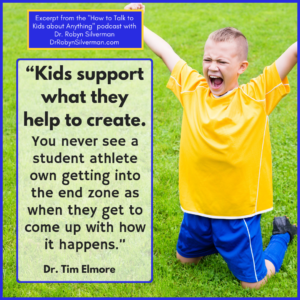 We’ve been hearing more about protecting than preparing our kids for life.
We’ve been hearing more about protecting than preparing our kids for life.- We need to balance two realities for the leader of the student- responsive and demanding. Responsive- I believe in you and I’m here to support you. Demanding- because I believe in you, I’m going to hold you to a standard that I know you are capable of meeting.
- We need our kids who are under our care to balance two of their own realities: autonomy and responsibility.
- All autonomy and no responsibility- we create brats. All responsibility and no autonomy- they may not take risks and venture off on their own.
- Freedom is something you earn based on responsibility and trust.
- An equation-if you do this (benefit) then that (consequence). This is how life works. Pay now, play later.
- The 12 mistakes parents make all fall under 4 major categories: We risk too little, we rescue too quickly, we rave too easily and we reward too frequently.
- “We have removed our children’s ability to problem solve and be resourceful because we have been solving the problems for them.”
- “Parents, ask yourself; is this going to help my child in the long run or is this a short cut to a better day today, not a better day tomorrow.”
- It’s about building resilient kids- and that can mean a bad day sometimes!
- We often ask common questions about what our kids want to do but we need to ask more “who questions.” Who do our children want to be?
- Victor Frankel- prisoners of war, the ones who died quickly, were asking themselves ‘what do I want out of life?’ Instead, those who endured, asked ‘what is life asking of me?’ (Man’s Search for Meaning)
- Metacognition- thinking about our thinking. This is a strong technique for moving kids from apathy to passion. Help them to own it.
- When children own their learning, passion gets ignited.
- Provide an activity that helps them build on an area that they can improve. Make it an experience instead of just a talk.
- What do your kids want to be said about them when they are finished with their lives?
- Tell your kids; “I believe in you. I have seen you do hard things before. You can do it now.”
- Best comment from a teacher, according to studies: “I’m giving you these comments because I have high expectations of you and I know you can reach them.”
Notable Quotables:
- “You’re not raising a kid, you’re raising a future adult.”
- “You’re not teaching a kid, you’re teaching a future citizen.”
- “Each day, when we are in front of our children, we need to ask ourselves; “do they need responsiveness or demandingness from me?”
- “The kids under our care need to balance two of their own realities: autonomy and responsibility.”
- “Relationships operate on the basis of trust.”
- “I believe that a home and a school runs best with very few rules and lots of equations.”
- “We want our kids to be thinking; ‘I can discipline myself so someone else doesn’t have to do it for me.’”
- “The 12 mistakes parents make all fall under 4 major categories: We risk too little, we rescue too quickly, we rave too easily and we reward too frequently.”
- “We need to ask our sons and daughters; who do you want to be?”
- When our kids come of age, we need them to ask themselves; ‘what is life asking of me’ and ‘what can I do to be a force for good?’”
- “You never see a student athlete own getting into the end zone as when they get to come up with how it happens.”
- Passion comes when a student gets to not only choose the subject they’re learning but how they get to approach it. The more they get to create it, the more they feel they own it.”
- ‘We live descriptively not prescriptively.”
- “You can either be a vampire or a surgeon when you give feedback to a child. A vampire sneaks up and draws blood and the person is worse afterwards. Or you can be a surgeon. It’s a well-lit room. We planned this encounter and I only surgically removed that tumor. I didn’t slice up your body or talk about everything that’s wrong with the warts and pimples. I just get that one tumor out and the person is better afterwards.”
- “When giving feedback, be a surgeon not a vampire.”
- “When giving feedback, speak out of belief not relief. When you speak out of relief, you want to relieve the tension, vent and get it off your chest. Instead, show them you believe in them.”
Resources:
- Growingleaders.com
- Marching Off the Map (book)
- Marching off the map (interactive travel guide)
- 12 Huge Mistakes Parents Can Avoid (book)
- 52 Leadership Activities You Can Use with Students

